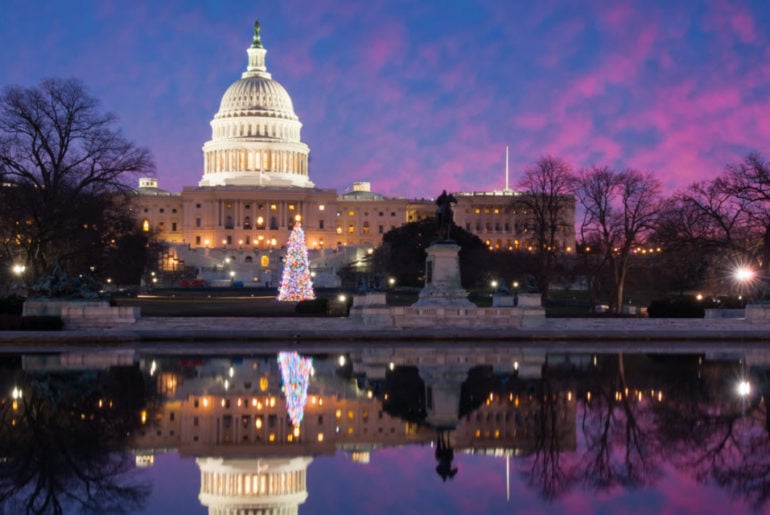On 20 October 2022, the US Treasury Department released the first Committee on Foreign Investment in the United States Enforcement and Penalty Guidelines. The Guidelines provide visibility into factors CFIUS considers when assessing violations of CFIUS laws and regulations, and determining potential penalties. The Guidelines are applied by the Monitoring and Enforcement office, which is part of the US Treasury Department’s Office of Investment Security.
Effective 28 October 2022, Canada implemented additional sanctions against Iran due to its “ongoing gross and systematic human rights violations and continued actions to destabilize regional peace and security.” An additional four individuals and two entities have been listed under Schedule 1 of the Special Economic Measures (Iran) Regulations.
On 7 October 2022, the US Commerce Department’s Bureau of Industry and Security issued the much anticipated rules aimed at restricting China’s ability to obtain advanced computing chips, develop and maintain supercomputers, and manufacture advanced semiconductors. In addition to formalizing the licensing requirements included in the recent BIS “is informed” letters issued to certain US companies on related matters, the Rule imposes a wide range of new and enhanced restrictions targeting China’s advanced computing and semiconductor sectors.
Please join us for a weekly series, hosted by Baker McKenzie’s North America Government Enforcement partners Jeffrey Martino and Jerome Tomas.
This weekly briefing is available on demand and will cover hot topics and current enforcement actions related to white collar crime and criminal investigations in the US and abroad to arm you with the information you need for your business week.
This week’s discussion will cover the following:
• DOJ’s Scrutiny on Interlocking Directorates spurs Board resignations
• DOJ files its first criminal Section 2 attempted monopolization case in decades
On 19 September 2022, the US Attorney for the District of Montana and the US Department of Justice, Antitrust Division filed a criminal information against and plea agreement with the president and owner of a paving and asphalt company to resolve a charge of attempted monopolization. The company owner pled guilty to engaging in anticompetitive conduct with the intent to gain monopoly power in the markets for highway crack sealing services in Montana and Wyoming by proposing to a competitor that they enter into a market-allocation agreement in which the two companies would stop competing against each other by dividing territories in Montana and Wyoming. The company owner also agreed to pay a fine of USD 27,000.
Welcome to In Focus, Baker McKenzie’s Labour and Employment video chat series for Canadian employers. In each on-demand episode, our lawyers provide insights and quick, practical tips on today’s most pressing issues and legal developments impacting employers operating in Canada.
Baker McKenzie’s Sanctions Blog published the alert titled Canada Imposes More Sanctions against Russia: 35 Individuals and 6 Entities in the Energy Sector Targeted on 31 October 2022. Read the article via the link here. Please also visit our Sanctions Blog for the most recent updates.
On 19 October 2022, the US Department of Justice’s Antitrust Division announced that seven directors had resigned from their respective corporate board positions in response to concerns of interlocking directorates. This announcement followed reports that DOJ had issued letters to numerous public companies, investors, and individuals last month. The letters reportedly indicated that DOJ was examining potential interlocks and advised the targets of the risk of potential enforcement actions. DOJ’s muscular posture toward enforcement under Section 8 of the Clayton Act is only the “first in a broader review of potentially unlawful interlocking directorates.”
Baker McKenzie’s Sanctions Blog published the alert titled OFAC, BIS, and Department of State Issue Alert on the Impact of Sanctions and Export Controls Targeting Russia on 17 October 2022. Read the article via the link here. Please also visit our Sanctions Blog for the most recent updates.
On 6 October 2022, the Assistant Secretary for Export Enforcement issued a policy aimed at enhancing enforcement of the antiboycott rules administered by the US Department of Commerce. The following day a final rule came into effect updating Department of Commerce’s guidance on charging and penalty determinations related to violations of the antiboycott provisions of the Export Administration Regulations. The changes are intended to bring penalty determinations in line with the Department of Commerce’s current view of the severity of certain types of antiboycott violations.


